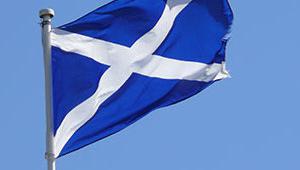By Keith Aitken in Edinburgh | 12 March 2014
A sharp fall in North Sea revenues last year has increased Scotland’s notional public finances deficit to £12bn, a significantly higher per capita figure than for the rest of the UK, according to the annual balance sheet for the Scottish economy.
The GERS (Government Expenditure & Revenue Scotland) statistics, published today, will be all the more hotly debated this year because of the approach of September’s independence referendum. As ever, the figures showed themselves to be susceptible to a diversity of political inference.
Labour Scottish finance spokesman Iain Gray said the GERS proved that, were Scotland independent, last year would have brought about a £4.4bn hole in the public finances, equivalent to the entire schools budget.
But First Minister Alex Salmond insisted that the drop in offshore revenues was partly due to an exceptional burst of investment activity in the energy sector, and that over the piece Scotland’s public finances were in better shape than the rest of the UK’s.
The drop in revenues from Scotland’s territorial share of oil and gas production brings the notional Scottish deficit for 2012/13 to 8.3% of output. This compares with a UK figure of 7.3%, but also with a previous year’s deficit for Scotland of just 5%.
‘These figures are an embarrassment for Alex Salmond and [Finance Secretary] John Swinney and completely discredit the SNP’s fiscal case for independence,’ Gray claimed.
‘The reality is that, as part of the UK, Scotland’s finances are stable and reliable. Today’s figures show that if Scotland were independent then John Swinney’s budget would have a £4.4bn hole in it.’
But Salmond said that, while per capita spending was above UK levels, the figures showed notional tax receipts last year to £800 per head higher than for the UK as a whole, the 33rd successive year they had been ahead. This, he claimed, showed Scotland to be ‘one of the wealthiest countries in the world’.
Taken over the past five years, Scotland was fiscally stronger than the UK to the tune of £8.3bn or £1,600 per person, Salmond said.
‘Today’s report shows Scotland and the UK were both in current budget deficit, by almost identical amounts as a percentage of GDP,’ Salmond said.
‘The net fiscal deficit – which includes investment spending – was one percentage point higher in Scotland than for the UK. This reflects the higher level of capital spending in Scotland which will boost the economy in the long term.’





















